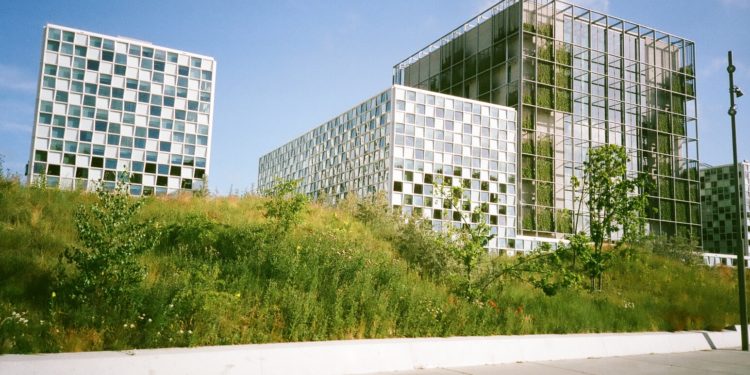By Tom Maliti
A former social worker described to the International Criminal Court (ICC) his work at a center that helped former child abductees of the Lord’s Resistance Army (LRA) reintegrate with their community.
Eric Awich Ochen also told the court on Thursday last week about research he had done on the difficulties women faced after they escaped the LRA. Ochen described how the decades-long conflict in northern Uganda affected Acholi society as many of the LRA’s leaders were Acholi, and the rebel group targeted mostly Acholi in its attacks.
Thursday’s hearing in the trial of former LRA commander Dominic Ongwen was the first hearing in a month. The last hearing was on September 30 when Justine Edeku Ooja testified. Ooja, a former member of the government-backed Arrow Boys militia group, testified about LRA activity in the eastern Uganda sub-region of Teso.
Ongwen is on trial for crimes he is alleged to have committed in northern Uganda between July 2002 and December 2005. He has been charged with 70 counts of war crimes and crimes against humanity. Ongwen has pleaded not guilty to all counts.
At the start of the hearing on Thursday last week, Presiding Judge Bertram Schmitt gave an oral ruling on an application the defense made two days earlier, on October 29, to have Ochen declared an expert witness. Judge Schmitt said the chamber declined to do so because the request was “manifestly untimely.”
He said Ochen had been on the defense witness list since July 2018, but it was only two days before his testimony that the defense requested Ochen be designated an expert witness. Judge Schmitt said the defense did not offer any reason why the request should be accepted on “an exceptional basis.” The judge said, however, the chamber would allow Ochen to offer opinions during his testimony, and they would determine on a case by case basis whether such testimony was permissible.
When he began his testimony, Ochen told the court he is a lecturer in the social work and social administration department of Makerere University. He said he worked for about three years as a social worker with the Gulu Support the Children Organization (GUSCO) between 1999 and 2002.
Ochen said GUSCO ran a reception center in Gulu, the main town of northern Uganda that only received former child abductees of the LRA. He said GUSCO also worked with the communities these children were set to re-join. Ochen said a separate reception center that World Vision ran accepted children and adults who had left the LRA. Ochen estimated GUSCO reunited with their families 7,000 former child abductees of the LRA between 1994 and 2016.
He told the court the children spent on average six weeks at the GUSCO reception center before being reunited with their families. Ochen said the children who spent as many as three months at the reception center usually did so because they had injuries when they first arrived at the center. He said some of them had to be hospitalized and needed a long time to recover from their injuries.
Ochen said it was widely known that many children who escaped the LRA did not pass through the GUSCO or World Vision reception centers. He said the number of those children was unknown. Ochen told the court there were two reasons some of the children who escaped the LRA did not go to the reception centers. He said one reason was that they feared encountering the Ugandan army.
“There are many children who did not want it to be known widely that they had been in the bush,” said Ochen, explaining the other reason some children did not go to the reception centers. He said if someone returned to their family via a reception center then the community was likely to know the LRA had abducted them.
Ochen said for his PhD thesis he interviewed 45 women who had left the LRA, all of whom had given birth while with the LRA. He said from his interviews he found that they faced a lot of stigma once they returned home. He said people who returned home from the LRA were commonly referred to as dwog cen paco in Acholi, which Ochen translated to mean those who had returned home. He said, however, the term was used in a derogatory manner.
“One of the biggest challenges that the young women faced … was their failure to find homes where they could be married. Their failure to find stable relationships,” said Ochen.
He said many of his interviewees told him, “When I was living in the bush life was better … I was not called all these names … Maybe it is better to go back to the bush where I am more accepted.”
Ochen said other research had found that 80 percent of what he called “the formerly abducted child mothers” have failed relationships.
“The problem seems to come from the male and female relatives of the man and not the person who has gone into the relationship,” said Ochen.
Thomas Obhof, one of Ongwen’s lawyers, questioned Ochen for the defense. Shkelzen Zeneli cross-examined Ochen for the prosecution and Anushka Sehmi questioned him for lawyers representing one of victims in the Ongwen trial.
Ochen concluded his testimony on Thursday. Judge Schmitt said the next hearing is scheduled for November 14.
A transcript of Ochen’s testimony can be found here.
This was first published on the International Justice Monitor.







